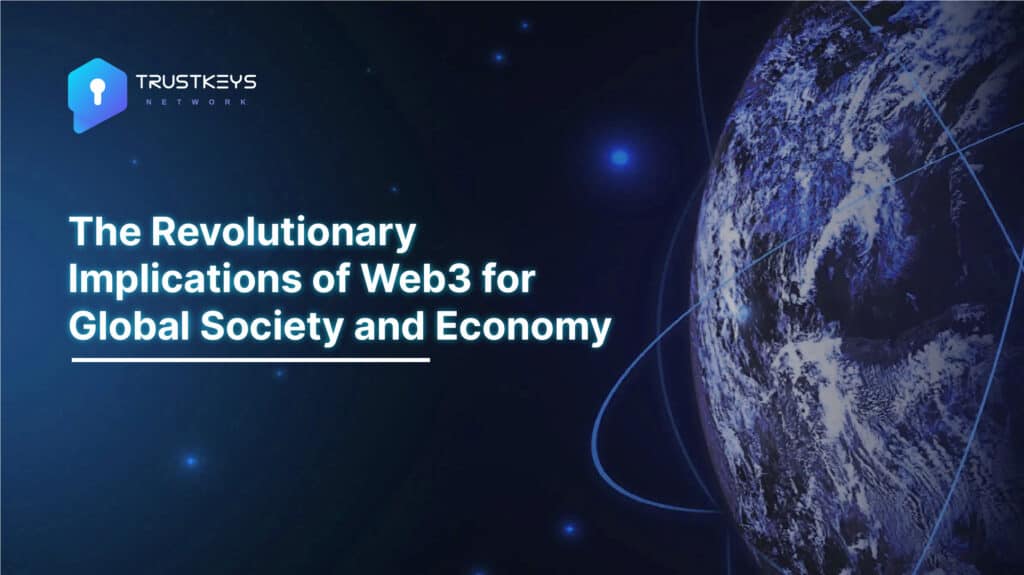Introduction
Web3 is the next generation of the internet, which is being built on top of blockchain technology. Unlike the current Web2, where data is controlled by a few large corporations, Web3 is decentralized and gives power back to the users. This new technology has the potential to revolutionize not only the way we interact with the internet, but also the way our global society and economy function.
Inclusive Financial System
One of the most significant changes that Web3 could bring is an inclusive financial system. Currently, the traditional financial system is controlled by a handful of large banks and financial institutions. This has led to inequalities in access to financial services, with many people and businesses being excluded from the system. Web3 could change this by providing a decentralized financial system that is accessible to everyone. With blockchain technology, people can access financial services without the need for a middleman. This could lead to a more inclusive financial system, where anyone can participate and benefit from financial services.
Web3 could also enable greater financial privacy, which is essential for individuals and businesses that may be targeted for their wealth or assets. Decentralized finance (DeFi) applications on the blockchain can provide users with privacy, security, and anonymity when it comes to financial transactions. This is particularly important for those living in countries with authoritarian regimes, where financial privacy could be the difference between life and death.
Furthermore, decentralized marketplaces built on the blockchain can provide a more level playing field for small businesses and individuals looking to sell their products and services. By removing intermediaries, buyers and sellers can interact directly, without having to worry about high fees or unfair competition from larger players.
Transparency and Accountability
Another potential change that Web3 could bring is increased transparency and accountability. With blockchain technology, all transactions are recorded on a public ledger that cannot be altered. This provides a level of transparency that is currently not possible with the traditional systems. In addition, smart contracts, which are self-executing contracts with the terms of the agreement directly written into code, could be used to enforce transparency and accountability. This could lead to a more trustworthy and fair society, where people can trust that their transactions and agreements will be executed as intended.
Moreover, the blockchain can be used to create tamper-proof systems for tracking and verifying supply chain data. This can help to eliminate fraud, counterfeiting, and other illegal activities that are prevalent in global supply chains. By creating a transparent and secure supply chain, businesses can improve their reputation, reduce costs, and increase customer trust.
Decentralized Governance
Finally, Web3 could bring about a new form of governance that is decentralized and more democratic. Currently, governments are controlled by a small group of people, and decisions are made without much input from the general public. With Web3, decentralized autonomous organizations (DAOs) can be created, which are organizations that run on blockchain technology and are governed by a set of rules that are written into code. This could lead to a more democratic society, where decisions are made based on the consensus of the community rather than a small group of people.
Furthermore, blockchain-based voting systems can provide a secure and transparent way for people to participate in the democratic process. By using blockchain technology, voting systems can be made tamper-proof, ensuring that the results are accurate and cannot be manipulated by outside forces. This could lead to a more fair and trustworthy electoral process, where people can trust that their votes will be counted as intended.
Conclusion
Web3 has the potential to bring about significant changes to our global society and economy. From an inclusive financial system to increased transparency and accountability, to a more decentralized and democratic governance structure, the possibilities are endless. However, it is important to note that these changes will not happen overnight, and there will be challenges along the way. It is up to us to work together and build a Web3 that is inclusive, transparent, and fair for everyone.
Ultimately, Web3 has the potential to create a more equitable and just society, where power is distributed more evenly and everyone has a voice. By leveraging the power of blockchain technology, we can create a world that is more transparent, trustworthy, and democratic, and that puts the needs of the people first.
